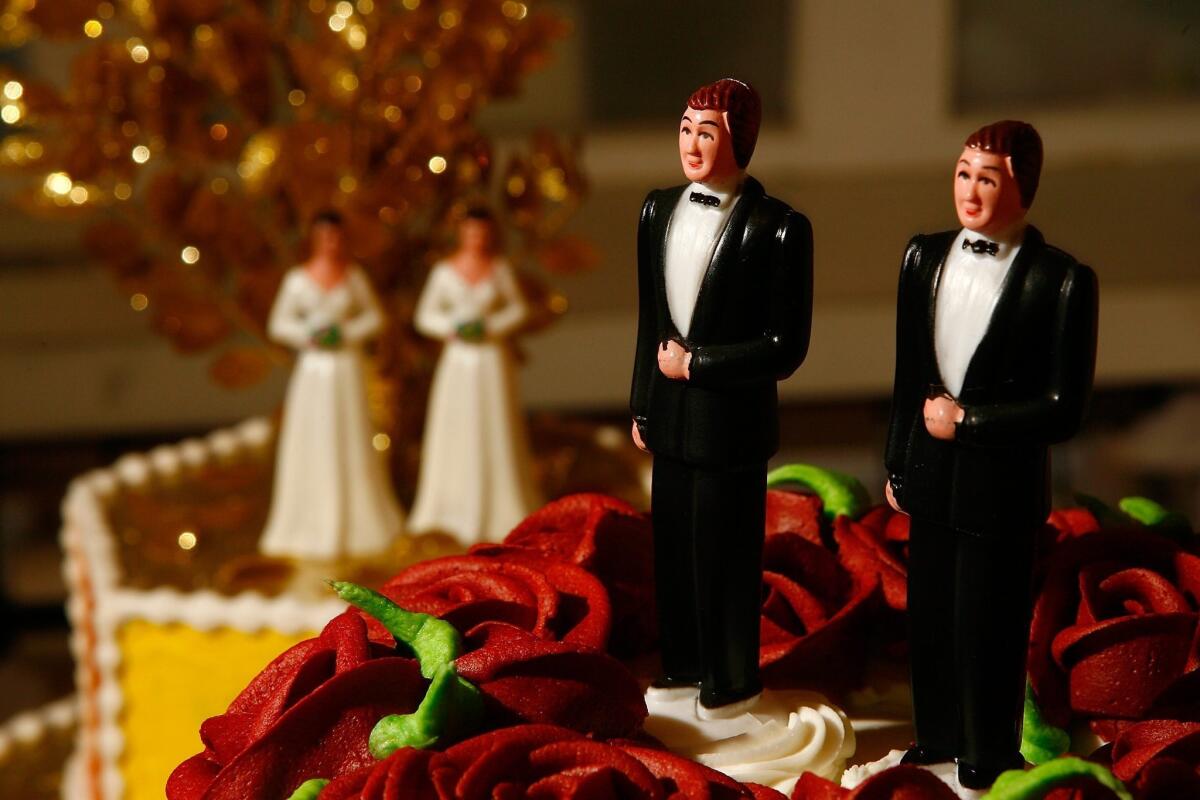Gay rights: Can discrimination be legal?

Marriage between members of the same sex, a once radical idea, is increasingly accepted even where it hasn’t been enshrined in law. But a significant number of Americans continue to object to gay marriage as a matter of religious conviction. Should they be able to act on their beliefs by refusing to do business with gay couples?
In the vast majority of cases, the answer must be no. The owners of restaurants, hotels and other public accommodations shouldn’t be able to refuse to serve gay couples, married or not, any more than they should be able to deny service to interracial couples or those from different religions. But the situation may be different for providers of services whose work involves the creation or communication of a message.
Elaine Huguenin, a wedding photographer, has asked the U.S. Supreme Court to overturn a ruling by New Mexico’s highest court that she was required by a state public-accommodations law to take pictures of a female couple’s “commitment ceremony.” Last week, a judge in Colorado ruled against a baker who had refused to supply a gay couple with a cake for their wedding reception.
YEAR IN REVIEW: Highs, lows and an ‘other’ at the Supreme Court
Although religious scruples were at issue in both cases, the issue is primarily one of free speech. The 1st Amendment protects not only the right to express one’s own views but also a right not to be compelled to convey someone else’s.
In her petition to the Supreme Court, Huguenin warns that the decision against her threatens other “expressive professions” including “marketers, advertisers, publicists and website designers.”
Much as we support same-sex marriage and oppose discrimination, we do see a distinction between businesses that provide the same product or service to all comers and those that collaborate in the creation of a personalized message. We acknowledge that drawing that line will sometimes be difficult.
An easy case was the businessman who offered “old-fashioned trolley” tours to newlyweds but wanted to exclude same-sex couples. The “expressive” quality of his work is minuscule. That’s also true of supplying a generic wedding cake to straight and gay couples alike. As the judge in Colorado put it, the baker had been asked “to bake a cake, not make a speech.”
On the other hand, compelled speech is a bad idea. No one would dream of requiring a Democratic speechwriter to work for a Republican politician. So what about a wedding photographer? Huguenin’s lawyer told the Supreme Court that “Huguenin, and not her customer, is the speaker communicating through her photographs and books. Her actions in choreographing, capturing, selecting, editing, producing and arranging the final photographs and storybooks all affect, and ultimately determine, the messages conveyed through her images and books.”
Not all wedding photographers imbue their work with a distinctive point of view, but many do. The Supreme Court should find a way to protect them and members of other “expressive professions.”
More to Read
A cure for the common opinion
Get thought-provoking perspectives with our weekly newsletter.
You may occasionally receive promotional content from the Los Angeles Times.










